Countering China Requires Coherently Integrated Actions
By Heino Klinck, former U.S. deputy assistant secretary of defense for East Asia, and Michael Ryan, former U.S. deputy assistant secretary of defense for European and NATO policy
Photos by the Associated Press
“In strategy, the longest way round is often the shortest way home.”
~ Historian B.H. Liddell Hart
“The indirect approach is by far the most hopeful and economic form of strategy.”
~ Sun Tzu
The West’s wishful thinking about the so-called peaceful rise of China has apparently come to an ignominious end, and not a moment too soon. The allure of cheap Chinese manufacturing and an insatiable Chinese market, facilitated by a dangerous blend of naivete and negligence, led to decades of ignoring the Chinese Communist Party’s (CCP) human rights abuses, intellectual property theft, revisionist history, unbridled military growth and just general duplicity. Finally, like-minded democracies have reluctantly concluded, some more publicly than others, that China is a pernicious actor. It has become increasingly clear that China’s growth in all elements of national power is accompanied and guided by a grand strategy antithetical to the Western way of life. In fact, the U.S. Department of Defense’s 2021 “China Military Power Report,” which refers to China as the People’s Republic of China (PRC), specifically states:
The PRC’s strategy aims to achieve “the great rejuvenation of the Chinese nation” by 2049 to match or surpass U.S. global influence and power, displace U.S. alliances and security partnerships in the Indo-Pacific region, and revise the international order to be more advantageous to Beijing’s authoritarian system and national interests. This strategy can be characterized as a determined pursuit of far-ranging efforts to expand the PRC’s national power.
China, as a unitary autocratic actor with the stated goal of becoming the world’s dominant power by the year 2049, enjoys a competitive advantage for two simple reasons: unity of effort and unity of purpose. Unity of effort means that a disciplined autocratic regime can coherently integrate all its elements of national power in pursuit of a determined comprehensive strategy. Autocratic regimes can make decisions faster, marshal resources more quickly and stay the course longer in competition or conflict than can a disparate group of democratically elected governments simply because the latter derive their power at regular intervals from the consent of the governed. Unity of purpose means that the strategic coherence inherent in the regime’s execution of an orchestrated strategy is designed to achieve a shared vision, which in China’s case is to become the world’s preeminent nation within three decades to coincide with the centennial anniversary of the establishment of the CCP-led China.
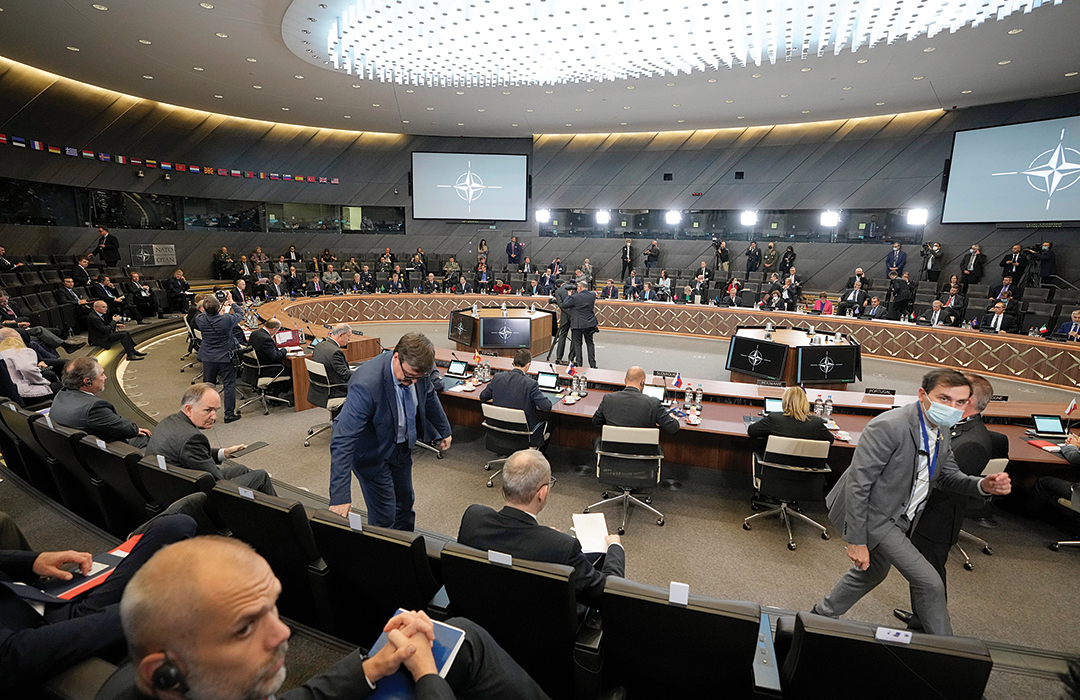
This long-term perspective is yet another competitive advantage of a unitary autocratic actor, endowing a strategic patience that enables the employment of indirect approaches aimed at weakening opponents through wisdom rather than bludgeoning them by force. Directed by autocratic actors, an indirect approach insidiously employs nefarious activities to undermine the ability and will of others to resist, while enhancing the autocrats’ relative power and influence. Such a pernicious approach, hidden in plain sight within today’s complex economic choreography, is particularly effective at pitting our competing priorities, interests and even allies against one another.
Understanding these fundamental advantages is key to discerning intent in China’s actions, and those of other autocratic actors as well, and then deriving an effective multilateral counter to ensure that collectively we remain masters of our own fates, and in so doing protect and defend our prosperity and way of life from the predatory behaviors of others who see the world differently than we do and who embrace distinctly different visions of governance, freedom and human rights.
The first step is to admit that we have a problem. The problem is not China specifically, nor is it our autocratic competitors in general. The problem is our inability to put this new collective imperative ahead of our national interests. Our increasing understanding of China’s pursuit of its comprehensive, indirect, long-term strategy should alert us to the growing trap that is our own strategic incoherence. The peril evident in China’s assertive use of its elements of national power globally, in the context of its ambition, should alert us to the possibility that we, all of us, are at risk of having our way of life dictated by Beijing. To paraphrase a quote often attributed to Vladimir Lenin, communist China will hang us with the rope we have sold them.
The second step is to admit that only concerted and effective multilateral action can preserve our autonomy, prosperity and way of life. The rules-based world order put in place after the cataclysm of World War II sought to enshrine such an effective and inclusive multilateralism globally to ensure that reconciliation of conflicting viewpoints was by peaceful means. The collective experience of the world wars compelled such a comprehensive approach to cooperative security. With the rise of the Soviet Union, collective defense became an essential part of effective multilateralism for free nations within the construct of containment. After the end of the Cold War and bipolar confrontation, the necessity of crisis management, first in the Balkans and then further afield, stressed nations’ commitment to effective multilateralism as respective national interests were threatened by increasingly distant confrontations. Thirty years on from the fall of the Berlin Wall, generations of new leaders, accustomed to peace, prosperity and unbridled freedoms, now face the conundrum of their forefathers: whether to contain, confront or appease dictators growing in strength and ambition. However, there is a fourth way. Our institutions and the lessons we’ve learned over the past 75 years offer the possibility that we can spiral up into a more coherently integrated approach to insist on a level playing field in international relations, particularly with respect to China, but also in our dealings with Russia, Iran, North Korea and others.
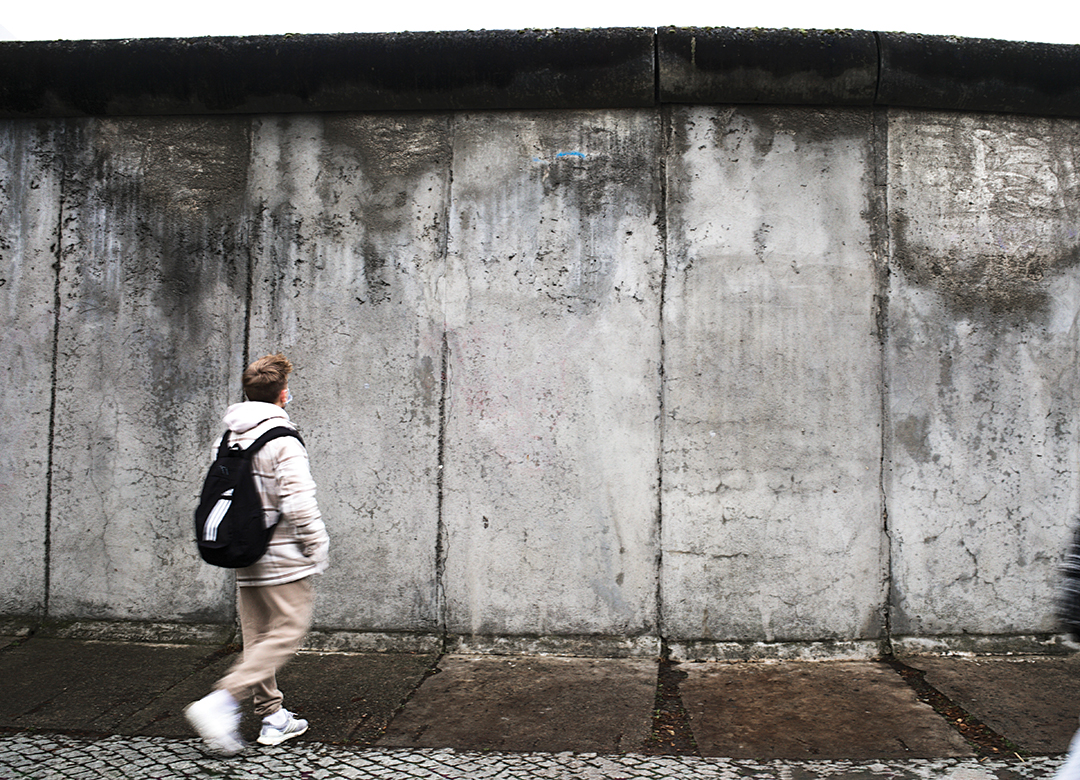
The Problem: What We Need to Learn
Why are we unable to put our collective interest in resisting China’s efforts to dominate us ahead of our national interests?
China’s competitive advantage as a unitary actor with respect to free nations derives from the CCP’s increasingly dominant role in the Chinese private sector and in civil society. In this way, the CCP leverages seemingly innocuous, legal and legitimate engagements with other societies to entrench its shadow efforts into the systems and institutions of others, while staying outside the reach and purview of most governments.
Shielded from government scrutiny, this indirect approach easily facilitates Chinese intrusion and manipulation through networking, funding, partnering and pilfering, increasing Chinese influence within key industries and aspects of society. Even now, Chinese foreign direct investment in Europe, having been identified as a growing challenge in key industries, is hiding behind contract law, which keeps the details of their tactics hidden from governments.
The success of the Chinese indirect approach is evident in the European Union’s accommodation with the CCP. What many in Europe see as a balancing act between the United States and China and/or a purely economic engagement with Chinese capital is in reality a death spiral for our Western way of life as the Chinese slowly and quietly tighten the noose. The reality has become that Chinese aggression and assertiveness in all domains is now so overt that the uncomfortable truth can no longer be ignored in sovereign European capitals as well as within the institutional headquarters of NATO and the EU. In 2019, the EU designated China as a systemic rival, acknowledging the CCP’s efforts to undermine and subvert the free and open order to advance their interests at the expense of others. While the European Commission attempted to design an engagement strategy to protect Europe, the EU failed to recognize the poison pill in the CCP’s economic rapprochement. For China to supplant the U.S. as the world’s dominant power, it must first separate Europe from North America and sever or at least debilitate the trans-Atlantic economy, which continues to strengthen both Europe and the U.S. This divide-and-conquer effort — within an indirect strategy that turns near-term greed into long-term weakness — would, if left unchecked, result in Europe as a vassal of China and America left to fend for itself.
China’s One Belt, One Road strategy, later renamed the Belt and Road Initiative, is a high-stakes play to capture the European economy. With rising energy prices, aging populations and chronic unemployment, despite an increasingly smaller workforce, Europe seems willing to look the other way regarding the CCP’s many nondemocratic faults in exchange for an export market, cheap goods and easy investment in European infrastructure. The Chinese, for their part, seem poised to cash in.
The CCP views the current international system as being in direct opposition to its own authoritarian system and an unacceptable impediment to its long-term objectives. Fundamentally, the implications of China’s activities, actions and underlying strategic objectives undermine both the values and, perhaps most saliently, the interests of America’s trans-Atlantic allies across all aspects of national power, a circumstance commonly referred to as DIME:
Diplomatically, China abided for many years by Deng Xiaoping’s famous 24-character maxim, roughly translated to mean: “Observe calmly; secure our position; cope with affairs calmly; hide our capacities and bide our time; be good at maintaining a low profile; and never claim leadership.” This has been jettisoned since the ascendancy of President Xi Jinping and replaced by actions such as reneging on pledges on Hong Kong autonomy, as enshrined in the Sino-British Joint Declaration; punishing Norway for decisions by the Nobel Committee in recognizing a Chinese human rights activist; and most recently trying to isolate Lithuania and the Czech Republic for their deepening relations with Taiwan.
Informationally, China built an image as a peaceful, noninterventionist country that had suffered a century of humiliation at the hands of foreign powers. The establishment of Confucius Institutes throughout Europe fostered a soft-power narrative favorable to Beijing. Increasingly, these same “institutes” became hubs for intimidation and interference in the domestic politics of host nations. More ominously, espionage was cited as the reason for the expulsion of the Confucius Institute director in Brussels in 2019.
Militarily, Europe has afforded the People’s Liberation Army (PLA) access to NATO tactics, techniques and procedures. While Sino-U.S. military-to-military engagements have been restricted by the National Defense Authorization Act of 2000, the PLA leveraged attendance at European Professional Military Education (PME) courses and other mil-to-mil activities to learn from America’s closest allies what could not be learned directly from the U.S. Furthermore, the PLA Navy’s presence in the Mediterranean and Baltic seas, as well as growing military ties to Russia, have made the rise of China an issue with which NATO must now contend.
Economically, Europe was a source of capital, technology and other resources central to China’s rise. In some respects, Europe substituted for the harder target of the U.S. in terms of access to sensitive technologies, information and know-how. The lack of societal awareness, the absence of meaningful national and EU processes similar to the Committee on Foreign Investment in the United States, and the inability to form political consensus allowed China to exploit seams that weren’t widely acknowledged until China’s acquisition of the German robotics company Kuka and attempted purchase of the German semiconductor company Aixtron in 2016. Continuing the Faustian bargain of economic dependence at the expense of liberal democratic values is no longer feasible, as the panacea of a cheap Chinese supply chain and infinite market for European goods has been replaced by the realities of CCP-conspired and CCP-orchestrated technology theft for economic and ultimately military gain.
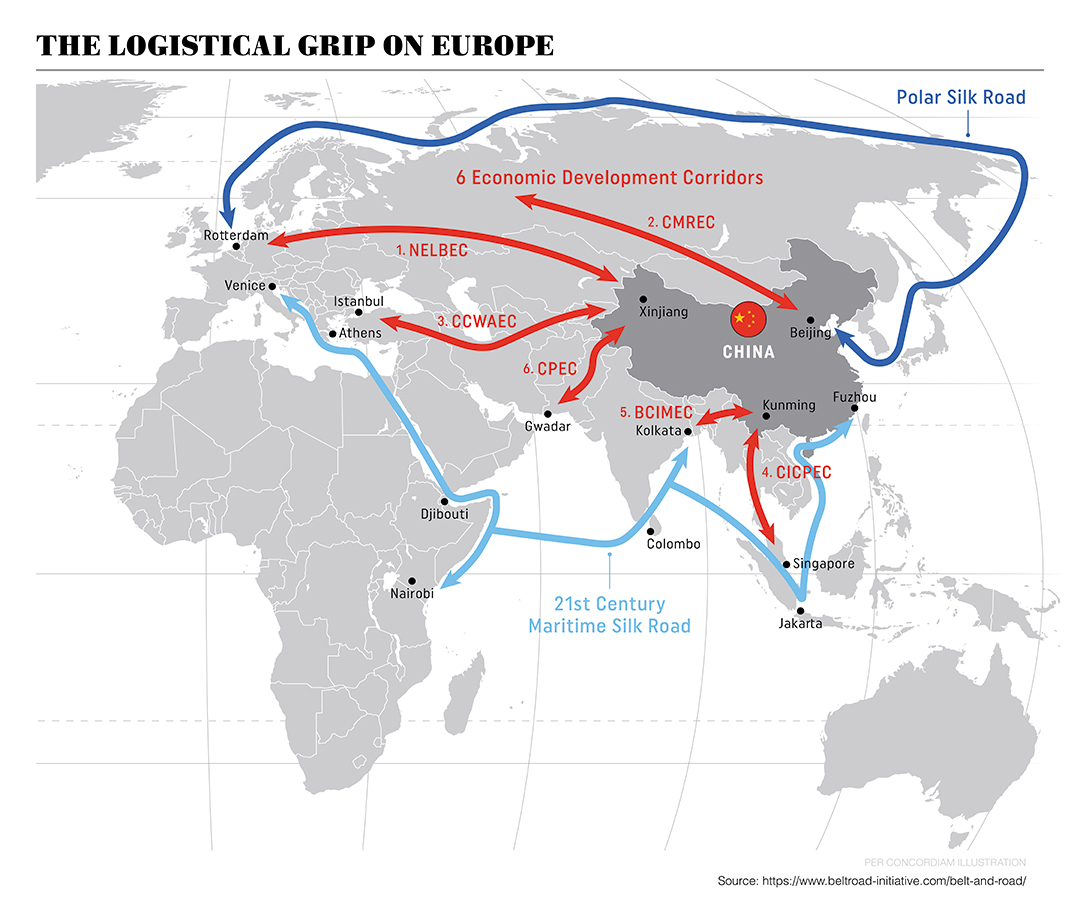
The U.S. National Security Strategy of 2017 and National Defense Strategy of 2018 served as our guides for competition, directed us to strengthen our alliances and partnerships and align our resources with our highest priorities as we confront this challenge to the international order together. U.S. President Joe Biden’s administration released a new National Defense Strategy in March 2022 that continues to focus on competition with China, as does its interim National Security Strategy, published in March 2021. The importance of strong alliances and partnerships to compete, deter and win against revisionist competitors such as China and Russia has never been more inescapable. As it did during previous competitions and conflicts with authoritarian and totalitarian regimes, the trans-Atlantic alliance must counter belligerent and malign forces through enhanced cooperation, providing a foundation for regional and global security, resilience and prosperity.
While the fundamental challenge is to our security, the essential tenets of our counterstrategy must directly address the subversive elements of China’s indirect strategy in the private sector, civil society and across the whole of government.
Across the DIME, China can no longer be allowed to exploit seams across the Atlantic and within Europe itself. For European subregional organizations such as the 16+1, relationships with China must be brought into alignment with the EU and NATO. China cannot be permitted to succeed in diplomatically or economically ostracizing Western democracies such as Lithuania and the Czech Republic that seek a more robust unofficial relationship with Taiwan. Chinese coercive, illegal and illiberal activities, particularly through the utilization of its aggressive “wolf warrior diplomacy” and ostensibly nonpolitical Confucius Institutes, must be met with resolute and unified action.
Militarily, the PLA must be viewed and treated as the armed component of the CCP. Not only have CCP and PLA publications and statements made it clear that China intends to “fully transform the people’s armed forces into a world-class force,” but the actions of the PLA, People’s Armed Police, Coast Guard, People’s Armed Militia, and even the fishing fleet have left little doubt as to Chinese intentions: namely that their geopolitical intent is hegemony, perhaps dominance. There is no discernible benefit to NATO in continuing to allow PLA officers to gain operational lessons learned through PME attendance. Moreover, the implications of European dual-use technologies for Chinese military modernization must be addressed at the national and EU levels through enhanced legislation and enforcement of export control mechanisms.
In the economic context, China’s “win-win” mantra with international interlocutors has turned out to actually mean that China wins twice. The costs of doing business with China in terms of joint venture exploitation, IP theft, the CCP’s role in corporate governance, intrusive cyber law and restricted market access have exceeded the touted potential gains that were realized by only a few foreign firms. Strengthened resilience, diversified supply chains and selective decoupling are now required to ensure that democratic countries’ businesses and national economies cannot be held hostage to China’s ire.
The Solution: What We Need to Do and Why
A simple formula defines the required relationship between democratic societies and autocratic ones: The sum of the resources of North America + Europe + n (where “n” represents our partners outside the trans-Atlantic space, such as Japan and Australia) must always be greater than the sum of the costs imposed by China + Russia + y (where “y” represents the few “partners” autocratic regimes have, such as North Korea, Iran, Cuba and Venezuela).
Our problem is the application of our resources is sporadic and unfocused while increasingly the costs imposed upon us (or threatened) by our autocratic competitors are targeted and sustained. If led properly as a community of interest, the U.S. and its allies and partners could find sufficient common ground among the private sector, civil society and government to identify the challenges, impose firewalls against inappropriate autocratic intrusion and focus our incredible resources on reducing the opportunities for competitors to weaken us, impose costs on us and unduly influence our societies. In this way, with their tactics neutralized through coherently integrated action, we may convince them that it’s better to play well with others than to make mischief.
In this calculation, our most pressing concern is our security. The free world’s ability to maintain credible defenses and therefore to deliver effective deterrence is the fundamental requirement for strength in the face of determined assertiveness. From this strong foundation, we can engage autocrats deliberately and directly. NATO, as the embodiment of strength, solidarity and commitment, has a broad remit in the Washington Treaty and in its Strategic Concept. The treaty outlines economic, political, military and diplomatic solidarity to ensure the well-being of nearly 1 billion citizens, while the Strategic Concept identifies NATO’s core tasks of collective defense, cooperative security and crisis management. As the indispensable forum for trans-Atlantic security and defense consultations and decisions, NATO is the place where North America and Europe, 30 nations in all, sit together with 40 partners to discuss and decide. All aspects of security can be on the table should the nations choose to put them there.
“What’s the fastest, simplest thing we can do with the highest probability of success? Build that.”
~ Author Simon Sinek describing Jeff Bezos’ approach
NATO has the power to convene meetings at the highest levels on a vast array of security-related topics. Based on our understanding of China’s (and Russia’s) indirect approach, NATO should be the central pillar of an effective multilateral process between governments, the private sector and civil society in the countries those governments represent, along with key international partners, such as the EU, to fully expose and then to understand the scope and scale of indirect actions targeting our will and ability to compete. This process should create a sense of urgency by laying out the implications of the challenge, then expand the security coalition to include private and civil champions, who will then set the vision, start initiatives, remove barriers to progress and accelerate the necessary changes. Only this intersection of actors between governments, the private sector and civil society can achieve the necessary awareness, urgency and vision required to resist China’s deliberate, well-financed, long-term indirect strategy. NATO in this case is merely the convening authority whose responsibility remains focused on security and defense as its contribution to the overall effort. But given that our security underpins our prosperity and way of life, the message conveyed through NATO’s role in this effort is correct and unmistakable.
Article 2 of the founding NATO treaty directed the signatories to ensure the strength of free institutions and of our economies, with the implication in Article 4 that any one of them could convene all of them to discuss threats to their political independence and security. China, in particular, constitutes a threat to security; the actions of the CCP are clearly directed at our free institutions and our economies, which together form the foundation of our security.
Article 2
The Parties will contribute toward the further development of peaceful and friendly international relations by strengthening their free institutions, by bringing about a better understanding of the principles upon which these institutions are founded, and by promoting conditions of stability and well-being. They will seek to eliminate conflict in their international economic policies and will encourage economic collaboration between any or all of them.
Article 4
The Parties will consult together whenever, in the opinion of any of them, the territorial integrity, political independence or security of any of the Parties is threatened.
The process of coherently integrating the actions of disparate groups to create unity of effort and purpose, while challenging, is straightforward. First, we build trust by talking and demonstrate trust by staying out of each other’s way. It’s not NATO’s job to tell the private sector or civil society what to do. Quite the contrary, it is NATO’s job to highlight where NATO’s ability to defend both is being undermined within their respective sectors by the actions of outsiders. Once the lanes and boundaries are established and respected, then, based on mutual understanding of the challenge, the various players can begin to coordinate their actions and responses. Here, trust grows and learning accelerates so that over time coordination can lead to integration where it makes sense. The more we integrate the more we learn to do so coherently in a pre-planned and well-orchestrated way. This “longest way round” is “the shortest way home” to paraphrase military historian B.H. Liddell Hart. This is NATO’s core task of cooperative security in action.
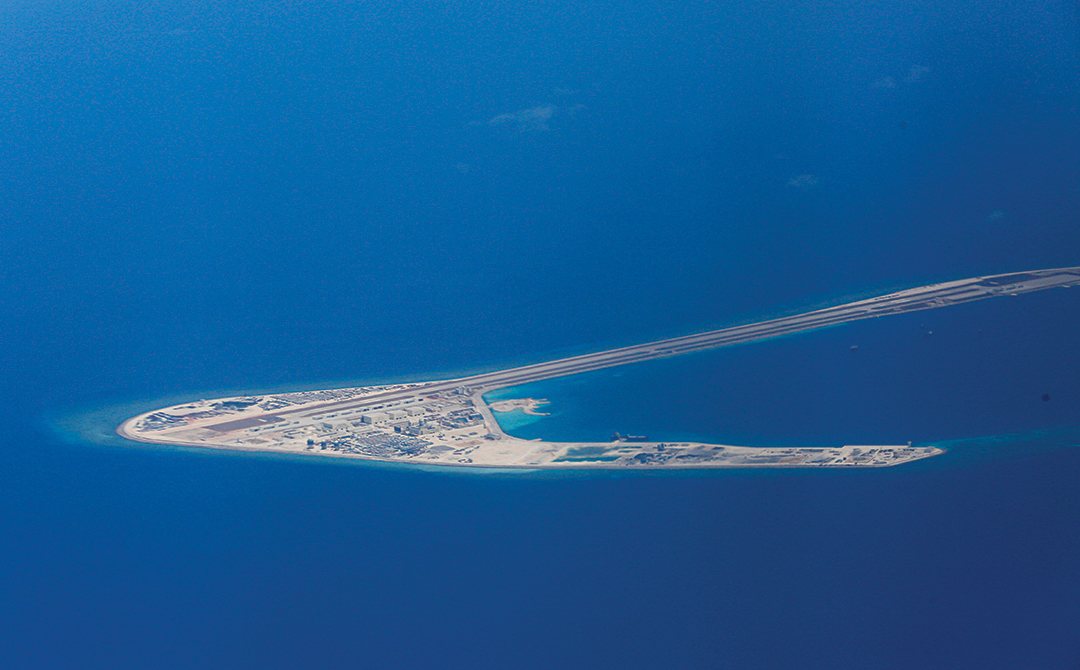
As the indispensable forum for trans-Atlantic security and defense consultations and decisions, and as the only table where the U.S. and Canada sit with their European allies, there is no better place to align our societies for the purpose of securing our prosperity and way of life. Article 9 of the North Atlantic Treaty empowers the signatories to take the necessary action under the direction of the North Atlantic Council: “The Council shall set up such subsidiary bodies as may be necessary.” Such bodies urgently need to begin this important work as their predecessors once did, focusing with the same expansive vision on our resilience, our unity and our autonomy.
Resilience is critical. We must remain masters of our own fate while recognizing that we are under indirect attack. Our ability as a community of free nations to operate effectively under such pressures, to absorb the adversaries’ blows, and to reconstitute and recommit ourselves to effective action constitutes our resilience within the trans-Atlantic community and beyond. Comprehensive resilience must be defended and retained; without it we can neither put forward nor sustain effective deterrence or defense.
The unified trans-Atlantic community comprises 1 billion people, generates half of global gross domestic product by value and invests $1 trillion annually in its own defense. With the addition of Japan, South Korea, Australia and other free societies, unity becomes even more powerful. The Chinese strategy of division, therefore, is an essential part of their drive for domination. Clearly, a resilient and unified set of democracies should be powerful enough to drive the rules-based world order toward a level playing field for all, including China and Russia.
Demonstrating that strength through resolute, visible and meaningful actions in the global commons is an essential part of countering the indirect strategy of the autocracies. Trans-Atlantic strategic autonomy, evidenced by freedom of navigation exercises in the South China Sea, by building constellations of satellites in space for GPS and the internet, by collaborating in both defensive and offensive cyber actions, and by committing to free, open and credible press and information on an unregulated internet, the community of democratic nations, led by the trans-Atlantic alliance, will continue to show China and other autocracies that the collective power and will of free peoples will not be undermined.
Specifically, areas in which Europe and North America share common interests, and those in which China, in particular, would like to divide and conquer include:
- The future development of emerging and disruptive technologies, such as artificial intelligence (AI), machine learning (ML) and quantum computing is a common interest and one in which China seeks advantage. But our secure networks, ability to operate in space and competition in cyberspace are today’s active challenges.
- Together, the U.S. and Europe can set the standards for the commercial applications of new technologies, which we must do lest China dictate to us how our societies will develop and how our way of life will be shaped in the future.
- The trans-Atlantic community must lead to enshrine in international law and in the rules-based world order the ethical use of AI and ML to forestall future nefarious manipulation of societies and the violation of human rights on a global scale, as is currently practiced inside China.
- Ensuring truth in the information space is critical for democracies, which means countering disinformation with rapid validation, original source referencing and imposing transparency regarding government-funded “news” outlets.
- NATO has a clear role to play in identifying for national governments, the private sector and civil society the key elements it needs to conduct credible collective defense and deliver meaningful deterrence. These requirements, once identified, need to be protected and placed behind firewalls that are impervious to Chinese and Russian whole-of-society tactics.

The ultimate goals of this effort remain the same as in 1945: A level playing field for all nations and the peaceful resolution of disputes. Only by publicly describing and condemning the indirect approach of the CCP, shining a light on its components and exposing the implications of its actions, can NATO, the EU and national governments begin to address the far-reaching repercussions of our collective inattentiveness thus far. A NATO-sponsored comprehensive approach, creating a unitary dialogue on all aspects of our security, is the necessary engine of a new enlightened approach to rising to the collective challenge of our day. This would then empower the other institutions of the rules-based world order to function more transparently and therefore more effectively enforce the rules laid down in their charters and mandates.
We are victims of our own success. Our historic prosperity and incredible freedom led us to self-centeredness and inward preoccupations; hence, the strategic coherence of the late 1940s has given way to geopolitical incoherence, creating new opportunities for those left out. The rapid onset of technology accelerated both impulses, distracting us deeper into our self-absorption while enabling those who would disrupt good governance, functional societies and fruitful partnerships. We must arrest both trends through awareness, agreement and action. We must do it now for our individual national securities depend on us effectively addressing this new collective imperative while there is still time.
The views expressed in this article are those of the authors and do not reflect the official policy or position of the Department of Defense or the U.S. government.


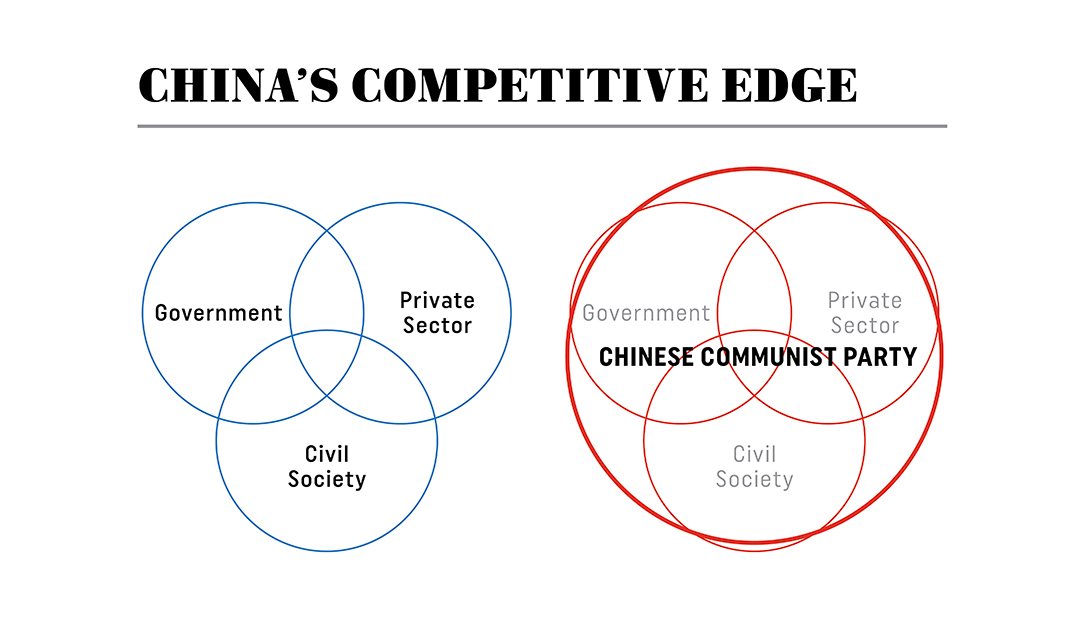
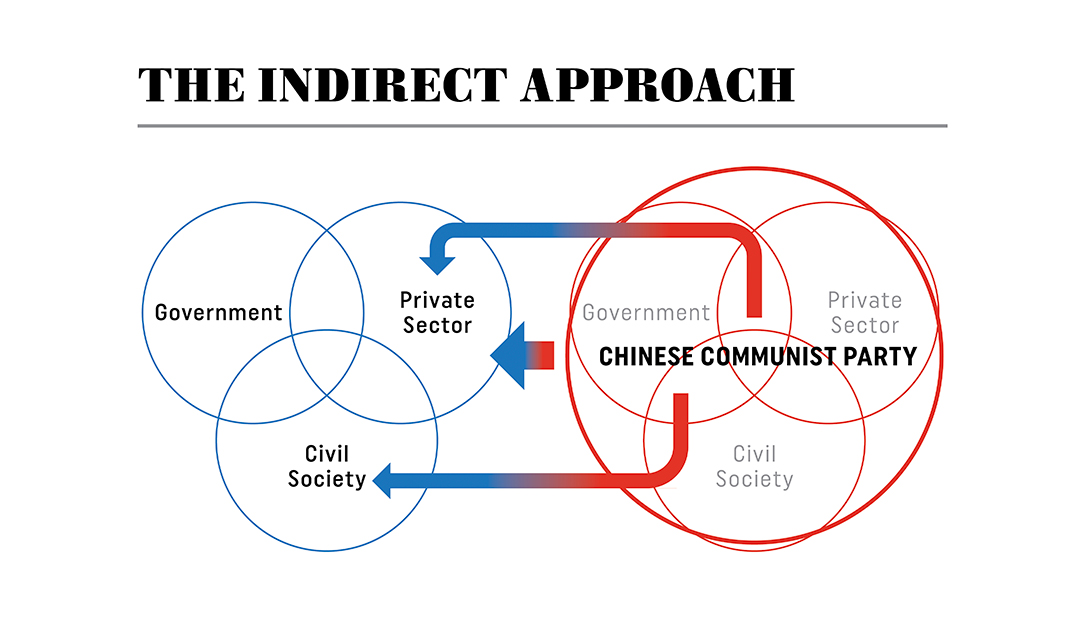
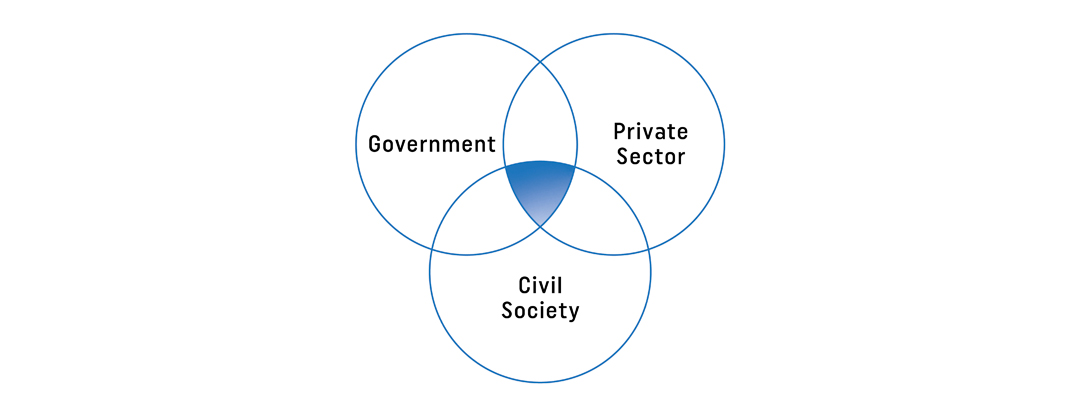
Comments are closed.